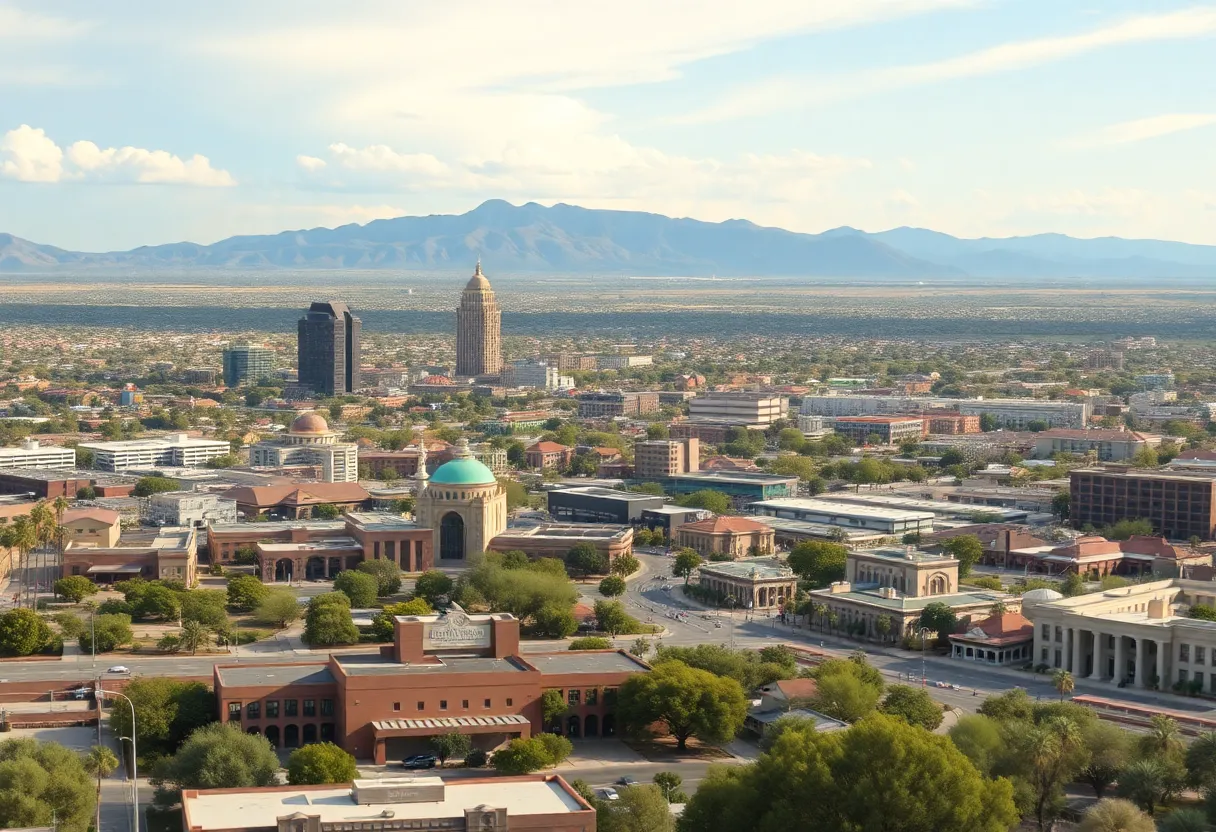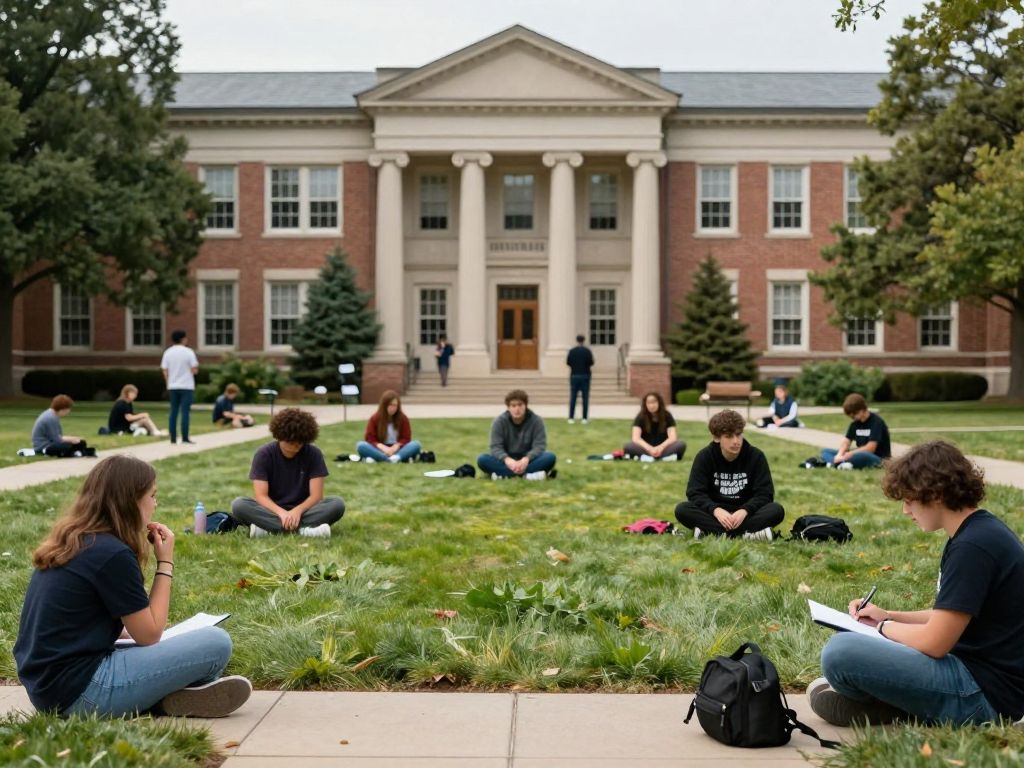News Summary
Tucson is grappling with significant economic issues, marked by a growth rate notably lower than the state average, job losses primarily in professional sectors, and a decline in its working-age population. Local leaders are calling for enhanced talent attraction strategies and government policy reforms to revitalize the economy. With ongoing discussions about increasing transparency in economic development and targeted initiatives in key sectors, Tucson aims to foster growth and manage high property taxes impacting residents. Despite hurdles, including housing affordability, there are signs of cautious optimism regarding the city’s economic future.
Tucson is facing significant economic challenges, with a growth rate of only 20% from 2001 to 2023, which falls below Arizona’s overall growth of 30% during the same timeframe. Recent reports have revealed that the city lost approximately 2,000 jobs in 2024, predominantly in professional and business services sectors. These factors underscore the urgent need for local strategies aimed at revitalizing Tucson’s economic landscape.
The decline in Tucson’s working population, specifically those aged 25 to 54, is concerning. It is being influenced by high property taxes and a trend of students leaving the area post-graduation. This talent drain has prompted local leaders, including the President of the Tucson Metro Chamber, to advocate for improved talent attraction initiatives to bolster the local workforce.
Government policies have been spotlighted as a crucial element contributing to Tucson’s sluggish economic development. A stark contrast is seen in city budget allocations, as Tucson dedicates only 9.6% of its budget to police services, while neighboring Phoenix allocates over 26%. This disparity may reflect broader priorities that impact investor confidence and economic growth.
Amidst these challenges, there are active discussions among the Pima County Board of Supervisors aimed at increasing transparency and public engagement in economic development projects. The Board is currently evaluating existing economic strategies to boost community participation and mitigate issues related to confidentiality surrounding project approvals, such as the recent “Project Blue,” which raised concerns about undisclosed companies seeking city incentives.
In light of these challenges, Tucson’s economic development policies are shifting focus toward attracting younger demographics. This includes strategies for job creation and addressing high property tax costs that currently burden residents. Despite these efforts, the Southern Arizona economy is only projected to grow modestly with a 0.8% population increase predicted by 2025. Job growth in Tucson is anticipated at about 1% annually, which, while slower than the state average, remains better than national rates.
Key contributing sectors for Tucson’s growth include healthcare, education, logistics, and a burgeoning battery manufacturing industry fueled by substantial investments. A notable project in this vein is the establishment of a $1.2 billion lithium-ion battery pack gigafactory by American Battery Factory, which is projected to create 1,000 jobs and generate $3.1 billion in economic impact for the local community.
Local government’s initiatives to enhance workforce training programs are also being implemented to meet the demands of an evolving job market. Challenges persist, particularly concerning housing affordability, as residents currently allocate an average of 45.3% of their income on housing costs. Nevertheless, economists remain cautiously optimistic regarding Tucson’s future growth potential.
Additional initiatives, like the Government Property Lease Excise Tax (GPLET), are being utilized to encourage new developments by reducing property taxes on significant property improvements. Moreover, the Tucson community is actively pursuing self-taxing measures to improve local infrastructure, focusing on necessary road and safety enhancements.
A major development, the Resolution Copper project, is projected to significantly contribute to Arizona’s economy, injecting about $1 billion annually and creating thousands of jobs when fully operational. Meanwhile, the Nogales City Council is reviewing administrative powers and potential staffing changes within its management framework.
Oro Valley, facing budget overruns in transportation projects, is forced to hold emergency meetings to realign funding. In a positive tone, Pima County is set to allocate over $3 million for nonprofit organizations to support various community services and economic development initiatives aimed at uplifting the local economy.
In summary, Tucson is navigating a complex economic landscape characterized by slow growth, job losses, and a need for policy reform. Ongoing initiatives are focused on attracting and retaining talent, enhancing transparency, and fostering growth across dynamic sectors, all of which will be critical for the city’s economic future.
Deeper Dive: News & Info About This Topic
HERE Resources
Arizona Pushes for Modern Payment Systems to Aid Black Entrepreneurs
Tucson City Council Rejects Controversial Project Blue
Tucson City Council Halts Controversial Project Blue
Tucson City Council Blocks Project Blue Data Center
H2K Site in Tucson Achieves Silver Designation
Arizona Faces Financial Gap from Federal Tax Changes
Arizona’s Job Market Faces Economic Uncertainty in 2025
Federal Funding Freeze Impacts Green Energy Projects in Tucson
Arizona Achieves Record Job Growth in FY25
Arizona Leaders Warn of Medicaid Cuts from Recent Senate Bill
Additional Resources
- Tucson Sentinel: Pima County Agenda
- AZ Big Media: Southern Arizona Economy
- KOLD News: Tucson Economic Growth
- KGUN9: Economic Uncertainty in Tucson
- AZ Central: Tucson Mayor’s Trip
- Wikipedia: Tucson, Arizona
- Google Search: Tucson economy
- Google Scholar: Tucson economic development
- Encyclopedia Britannica: Tucson
- Google News: Tucson economic challenges

Author: STAFF HERE PHOENIX WRITER
The PHOENIX STAFF WRITER represents the experienced team at HEREPhoenix.com, your go-to source for actionable local news and information in Phoenix, Maricopa County, and beyond. Specializing in "news you can use," we cover essential topics like product reviews for personal and business needs, local business directories, politics, real estate trends, neighborhood insights, and state news affecting the area—with deep expertise drawn from years of dedicated reporting and strong community input, including local press releases and business updates. We deliver top reporting on high-value events such as the Waste Management Phoenix Open, Cactus League Spring Training, and Arizona State Fair. Our coverage extends to key organizations like the Greater Phoenix Chamber of Commerce and Visit Phoenix, plus leading businesses in technology and healthcare that power the local economy such as Intel and Banner Health. As part of the broader HERE network, including HERETucson.com, we provide comprehensive, credible insights into Arizona's dynamic landscape.





